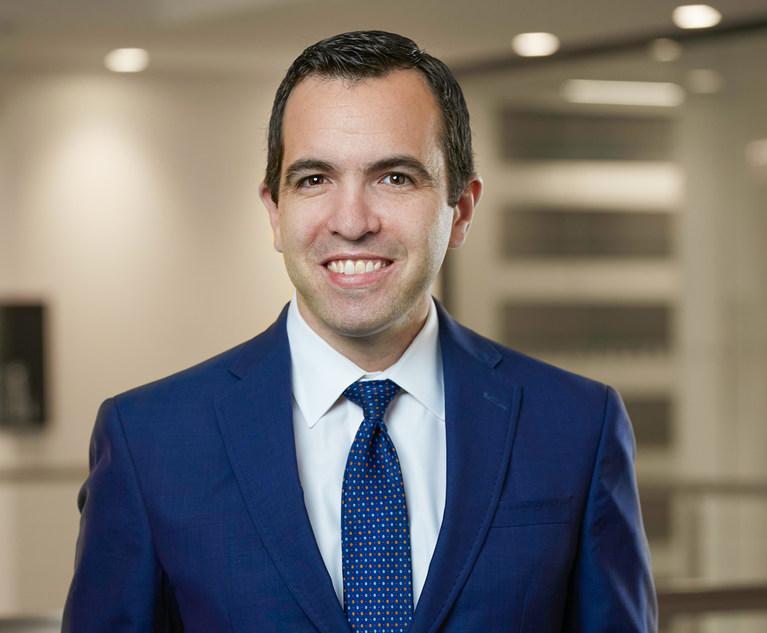Acting Attorney General Matthew Platkin and the Division of Law has announced that, as of Nov. 1, a new version of “Outside Counsel Guidelines” will go into effect as part of the new fall initiatives for the Department of Law and Public Safety.
The new guidelines for outside counsel, last updated in 2015, address topics such as ridesharing expenses and updated ethics principles. In order to refresh the department’s subject-matter lists, the Department of Law and Public Safety will issue several new “Requests for Qualifications for Outside Counsel.” A new online application tool will be used for RFQs, which will be the subject of an Oct. 11 training webinar. There will also be a virtual introduction session on Sept. 14.
Although the vast majority of legal representations for the state’s departments, boards and commissions are handled by in-house attorneys, those entities retain private law firms for some needs. The rules and restrictions for outside counsel exist to ensure a high quality of representation at a low cost, according to a release by the acting AG’s office.
Executive Order 157, issued in 2009 by then-Gov. Jon Corzine, established the process for hiring outside counsel and still remains in effect. That order dictates that the Division of Law may only retain private law firms that are prequalified to provide legal services in a particular practice area. “Approved Special Counsel Lists” are maintained by the division and updated every three years, on average. Prior to that update, an RFQ is issued by the division and publicized to the New Jersey legal community, a process that includes a mailing list notifying subscribers of new RFQs.
A requirement of law firms retained as outside counsel to the Division of Law is compliance with the Outside Counsel Guidelines, the new version of which is taking effect on Nov. 1. The new guidelines include detailed information about conflicts of interest, staffing, billing, confidentiality, and engagement of third-party vendors, among other topics.
In his release, Platkin addressed the commonly asked question as to whether a private law firm can represent a state agency when that firm also represents a client adverse to a different state agency. A May 2019 letter from then-Attorney General Gurbir Grewal was sent to Platkin when Platkin served as the governor’s chief counsel addressing that subject.
The new guidelines begin with the “Conflicts” section and highlight the May 2019 letter issued by Grewal. In it, Grewal wrote, “In light of the complexity and diversity of the government entities within a single Department or Authority, the representation of one subsidiary unit within a Department or Authority while being adverse to another subsidiary unit will not necessarily create a conflict. As a result, the RPC conflict analysis requires identifying with particularity which unit is truly the party in interest and is therefore the relevant government client.”
Several paragraphs in the guidelines have been added to the “Positional Conflicts” section. Also included in the updated guidelines is an explanation of the outside counsel relationship, including compliance with Chapter 51 on political contributions and the importance of naming a “designated attorney” for the matter.
Perhaps the biggest change included in the new guidelines is the section on “Invoicing.” Specific rules have been delineated regarding fees and expenses that will no longer be permitted. Also included is clarification of rules regarding meals, travel, and the use of ridesharing. Adjustments have been made to account for the prevalence of electronic filing and electronic communications from the courts.
In an effort to ensure the Division of Law’s commitment to diversity, as part of the RFQ process, it is required that all law firms complete a “diversity questionnaire” that includes information about the demographic composition of the firm. The Department of Law and Public Safety’s chief diversity officer coordinates with state bar associations to make sure interested lawyers learn of available opportunities.
“We encourage people to sign up for the virtual Sept. 14, 2 p.m. introduction and the Oct. 11 RFQ application tutorial (time TBA) to learn more,” stated a spokesperson for the Office of the Attorney General.
In addition to the new counsel guidelines taking effect in November, Gov. Phil Murphy recently updated the guidelines for law firms providing pro bono legal services to state agencies.
NOT FOR REPRINT
© 2024 ALM Global, LLC, All Rights Reserved. Request academic re-use from www.copyright.com. All other uses, submit a request to [email protected]. For more information visit Asset & Logo Licensing.


 Matthew J. Platkin, Lowenstein Sandler. Courtesy photo
Matthew J. Platkin, Lowenstein Sandler. Courtesy photo






